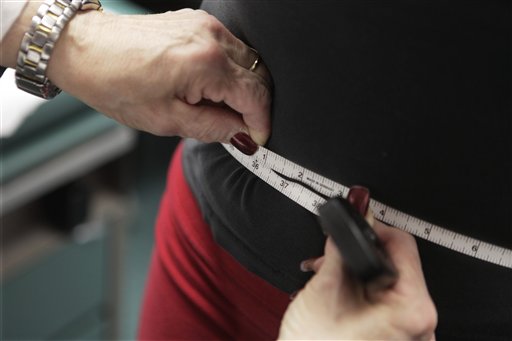 Jamie Oliver is doing it. Michelle Obama is doing it. And now Yvette Clarke is doing it.
Jamie Oliver is doing it. Michelle Obama is doing it. And now Yvette Clarke is doing it.
They are fighting against America’s staggering childhood obesity rate.
It’s the latest priority on Clarke’s appropriations request for next year, and it is one that rivals her usual priorities to Jewish and Caribbean communities.
But the good news comes with mixed feelings. One group that didn’t make the list after receiving strong support last year is at-risk gay and lesbian youth.
In her previous request for appropriations that would be used for spending this year, Rep. Yvette Clarke sought $2 million for a project by the Gay Men’s Health Crisis to launch an HIV prevention campaign for at-risk youth.
The project “is a valuable use of taxpayer funds because over 850 clients in the 11th Congressional District will have access to services,” said Clarke in her request.
Indeed, the issue was so pressing that the money she requested for the program was the highest in its category (Commerce, Justice, and Science), and for any individual request made in the Energy and Water, Financial, and Homeland Security categories.
Of the 30 individual requests for 2010, the HIV prevention campaign ranked number seven fiscally – behind a cyber security infrastructure project and funding for the NYPD.
But in her 2011 fiscal year appropriations request, the at-risk gay and lesbian youth were missing – even as other projects, particularly those serving Jewish and Caribbean communities, both large populations in NY-11, stayed put.
What appears to have replaced youth at risk for HIV are those at risk for obesity.
Girls Incorporated ($500,000), GrowNYC ($230,000), St. John’s Bread and Life Program ($300,000), the City Parks Foundation ($150,000), and the Sports and Arts in School Foundation ($300,000) are all called obesity-fighting programs in Clarke’s appropriations request – and they’re all new to this year’s list.
According to Clarke, each program is “a valuable use of taxpayer funds” because:
- Girls Incorporated will help “meet the goals of the new national childhood obesity initiative;”
- GrowNYC will create “jobs for teens” and “reduce the health costs associated with diabetes, obesity and heart disease;”
- St. John’s program “addresses the obesity epidemic;”
- City Parks Foundation will serve “communities plagued by high rates of obesity;”
- Sports and Arts will focus on the “high rates of childhood obesity” because it’s one of the “greatest threats to young people.”
Obesity can be life-threatening and addressing it is important. But so is HIV.
While it is uncertain whether Gay Men’s Health Crisis or other HIV prevention programs requested funds for 2011, one thing is clear: Clarke understands the ongoing need for funding of those campaigns.
Such programs, she said last year, “provide life saving services crucial in the fight to reverse the alarming rate of infection among youth in New York City.”
According to the New York City Department of Health, more than 100,000 New Yorkers are living with HIV and thousands don’t know they’re infected, making New York City the epicenter of the HIV/AIDS epidemic in the U.S.
And though $2 million was requested for Gay Men’s Health Crisis, it ultimately received a smaller amount, $1.5 million, according to an appropriations-received report.
The fight against the “alarming rate” of HIV, therefore, is far from over – but one wouldn’t know that from Clarke’s latest appropriations request.